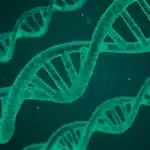Christian de Duve (2 October 1917 – 4 May 2013) was a Belgian biochemist and cytologist. In 1974, he was awarded the Nobel Prize in Physiology or Medicine.
Life and Career
He was born on 2 October 1917, in England. He grew up in Antwerp, Belgium, and later moved to Louvain, where he studied at the Catholic University of Louvain. He received his medical degree from the Catholic University of Louvain in 1941. He then pursued postgraduate studies in chemistry at the University of Glasgow, where he earned his Ph.D. in 1945.
After his studies, he worked at the Rockefeller Institute in New York from 1945 to 1947, where he studied the metabolism of glycogen. He then returned to Belgium and joined the faculty of the Catholic University of Louvain, where he conducted research on the mechanisms of enzyme synthesis and degradation.
In the 1950s, he discovered the lysosome, a cellular organelle that contains enzymes responsible for breaking down and recycling cellular waste. This discovery earned him the Nobel Prize in Physiology or Medicine in 1974, which he shared with Albert Claude and George Palade.
De Duve continued to conduct research on cellular organelles throughout his career, and he made important contributions to the understanding of peroxisomes, another type of organelle involved in cellular metabolism.
He died on 4 May 2013, in Belgium.
Award and Legacy
In 1974, he was awarded the Nobel Prize in Physiology or Medicine, which he shared with Albert Claude and George Palade. The award recognized his discovery of the lysosome and his contributions to the understanding of cellular organelles.
In addition to the Nobel Prize, Christian de Duve received numerous other awards and honors throughout his career, including the Wolf Prize in Medicine in 1978, the Copley Medal from the Royal Society in 1989, and the Japan Prize in 1996.
He is remembered as a pioneering scientist who made significant contributions to the field of cell biology. His discovery of the lysosome revolutionized the understanding of cellular metabolism and paved the way for new treatments for lysosomal storage diseases. De Duve also played a key role in the development of the concept of autophagy, the process by which cells break down and recycle their own components. His work continues to inspire new research in the field of cell biology today.
Observer Voice is the one stop site for National, International news, Editor’s Choice, Art/culture contents, Quotes and much more. We also cover historical contents. Historical contents includes World History, Indian History, and what happened today. The website also covers Entertainment across the India and World.
Follow Us on Twitter, Instagram, Facebook, & LinkedIn










